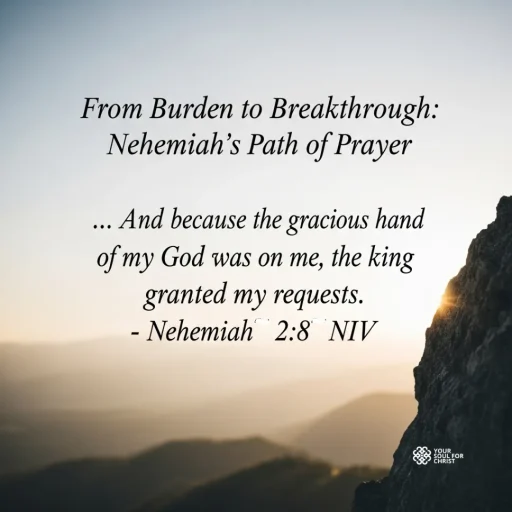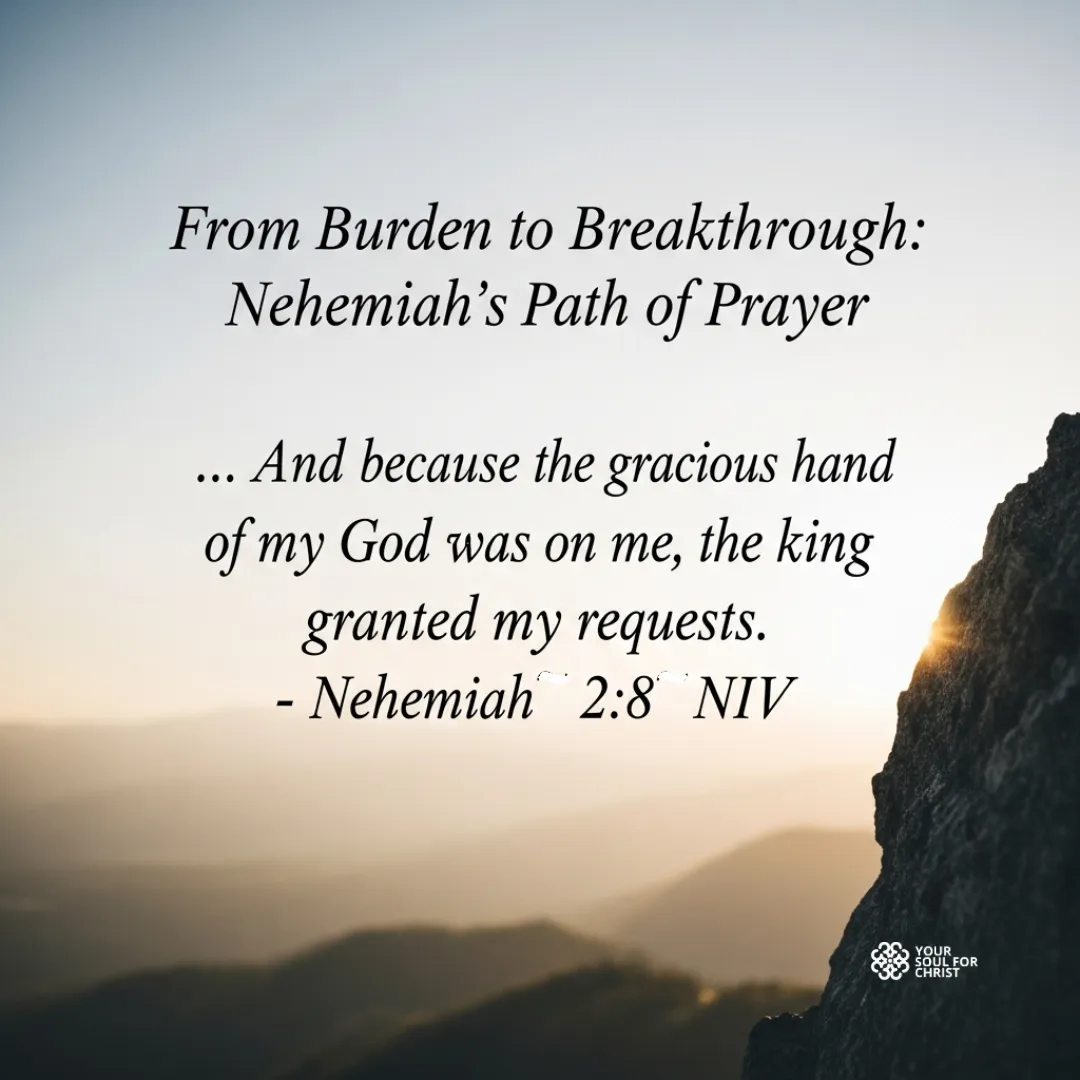And may I have a letter to Asaph, keeper of the royal park, so he will give me timber to make beams for the gates of the citadel by the temple and for the city wall and for the residence I will occupy?” And because the gracious hand of my God was on me, the king granted my requests.
Nehemiah 2:8 NIV
How do we respond when we hear disturbing news—reports that may not directly impact us but resonate deeply within? Do we simply move on, unaffected? Or do we, like Nehemiah, allow the weight of the burden to draw us into God’s presence?
In Nehemiah chapter 1, we encounter a man far from his homeland, yet deeply connected to it. While serving in Babylon, Nehemiah received word that the survivors of the exile in Jerusalem were facing great distress. The city’s protective wall lay in ruins, and its gates had been consumed by fire. Though Nehemiah was not physically in the situation, the news stirred his heart.
He could have responded with indifference. After all, his family was likely with him in Babylon. He held a secure position in the palace, far from the chaos of Jerusalem. Yet he did not harden his heart. Scripture tells us, “When I heard these things, I sat down and wept. For some days I mourned and fasted and prayed before the God of heaven” (Nehemiah 1:4, NIV).
Nehemiah’s response reveals a man of deep compassion and spiritual sensitivity. He didn’t rush to action, nor did he criticise or despair. Instead, he turned to God. He grieved over the condition of his people and sought divine intervention. His reaction challenges us to consider: Do we intercede when we hear of brokenness in the body of Christ, in our nation, or among those we love?
Nehemiah’s burden didn’t end in prayer alone. In chapter 2, we see that while he remained diligent in his duties as the king’s cupbearer, the sorrow in his heart became visible. The king noticed his downcast face and questioned him. Rather than hiding his concern, Nehemiah boldly shared the reason for his sadness—and then made a bold request.
He asked for safe passage and materials to rebuild the city walls. “If it pleases the king, may I have letters… so that they will provide me safe conduct… And may I have a letter to Asaph… so he will give me timber…” (Nehemiah 2:7-8). He wasn’t vague or uncertain. He was specific, strategic, and bold—because he had already battled in prayer.
What’s even more remarkable is Nehemiah’s wisdom. The governors he sought letters against were historically known to oppose the rebuilding efforts during the days of Zerubbabel and Joshua. Nehemiah likely knew this, yet he didn’t approach the situation casually. He knew this could become an added burden for him. His preparation in prayer and insight into past opposition led him to secure provisions that would prevent future hindrances. He didn’t wait to react to conflict; he anticipated it and made spiritual and practical provisions.
This shows us that prayer doesn’t negate planning—it empowers it. Nehemiah’s success before the king was no coincidence. As he later reflected, “Because the gracious hand of my God was on me, the king granted my requests” (Nehemiah 2:8, NIV). God had gone before him.
Nehemiah’s story reminds me that spiritual sensitivity must lead to spiritual action. When I hear of brokenness in the Church, in my community, or the lives of those around me, I must not remain silent or disengaged. I am called to stand in the gap—just as God declares in Ezekiel 22:30, “I looked for someone among them who would build up the wall and stand before me in the gap…”
Nehemiah was such a man—broken before God, yet bold before kings. And today, the Lord still searches for those who will carry His burden with compassion and respond with faith.
Not by relying on our own strength or righteousness, but by yielding to the Holy Spirit, we can become vessels through which restoration begins.
Living It Out
Are there situations you’ve heard about lately that stirred your heart? Perhaps they concern your local church, your nation, or the spiritual state of someone you know. Don’t brush them aside.
Take them to God in prayer. Fast if you’re led. Ask Him for wisdom, strategy, and the courage to act when the moment comes. Let Nehemiah’s example inspire you to become a person who stands in the gap—faithful in secret, courageous in public, and wholly dependent on God’s gracious hand.
May we, like Nehemiah, be found ready and willing—not because we are worthy, but because God is able to work through a yielded heart for His glory.

